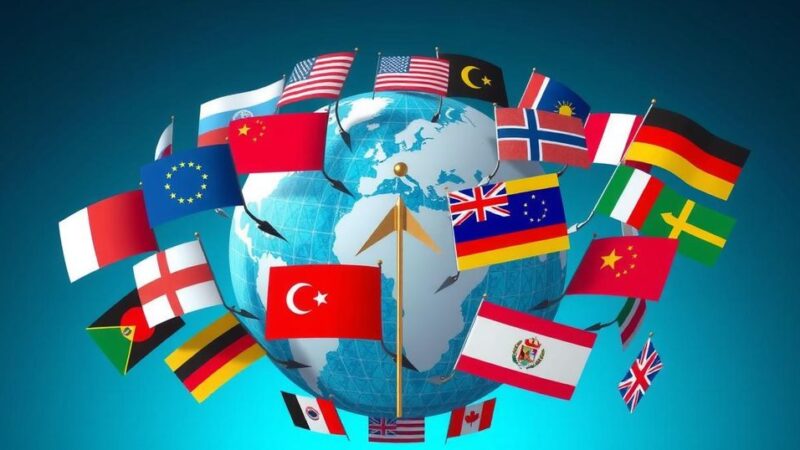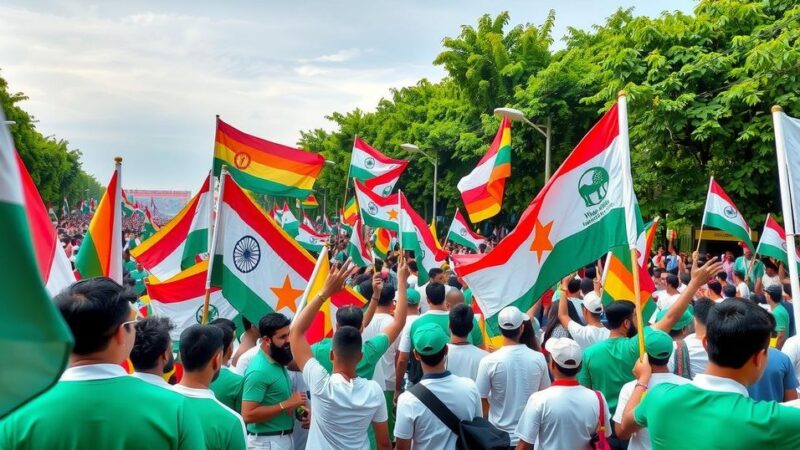Samuel Ikoku made history as the first Nigerian to defeat his father, Alvan Ikoku, in an election in 1957. He was an influential figure in the independence movement and held various political roles throughout his career, reflecting significant shifts in Nigeria’s political landscape. Ikoku’s journey showcases the unique challenges and achievements within Nigerian politics during the 20th century.
In Nigeria, it is culturally uncommon for a child to contest against his father in elections. Nevertheless, Samuel Ikoku made history as the first Nigerian to defeat his father, Alvan Ikoku, in an election, marking a significant event in the country’s political history. This unprecedented occurrence took place on March 15, 1957, when Samuel defeated Alvan by 59 votes in a regional House of Assembly election.
Samuel Ikoku, born on July 24, 1922, to Alvan Azinna Ikoku and Grace Ikoku in Arochukwu, Abia State, completed his education at Achimota College and later at the University College, Southampton. While studying, he supported Nigeria’s independence through articles published in the West African Pilot, engaging with the movement led by Nnamdi Azikiwe.
Upon obtaining his degree, Mr. Ikoku became involved in the radical faction of Nigeria’s independence movement. He served as an adviser to the Nigerian Federation of Labour and co-founded the United Working People’s Party in 1952, which was disbanded by the government the following year due to its subversive label. Subsequently, he aligned with the Action Group and became an influential figure in the First Republic.
His outspoken nature led him to be regarded as a controversial figure, as noted by former Minister Sam Momah. Ikoku criticized the Legislative Council, where his father was a member, and advocated for immediate independence through writings in the West African Pilot. His historic election victory in 1957 led him to represent the Action Group and serve as the opposition leader in the regional House of Assembly.
In 1962, Samuel Ikoku traveled to Ghana just before a crisis in the Western Region House of Assembly led to a state of emergency, resulting in treason charges against several members of the Action Group, including him. While in Ghana, he organized a branch of the Action Group, lectured at Nkrumah’s Ideological Institute, and edited Spark Magazine.
During the Nigerian Civil War, Samuel did not advocate for secession. Following his return from Ghana, he was briefly detained, later holding positions as commissioner for Economic Development and then Health in East Central State. He distanced himself from the Action Group, joining Aminu Kano’s People’s Redemption Party as Secretary-General and advocating for the emancipation of the ‘talakawa.’
Ikoku served as Aminu Kano’s vice presidential candidate in the 1979 election, ultimately won by Shehu Shagari. Over time, he began to shift away from socialist ideals, later advising Shagari and promoting the military’s role in Nigeria’s politics during the Babangida administration. He also served as deputy chairman of the Transition Implementation Committee during Sani Abacha’s regime, arguing for Abacha’s potential succession. Samuel Ikoku passed away in 1997.
Join BusinessDay WhatsApp Channel to stay informed.
Samuel Ikoku’s political journey is notable for his historic victory over his father, Alvan Ikoku, and his various roles in Nigeria’s independence movement and political landscape. His contributions encompassed advocating for immediate independence, involvement in the Action Group, participation in various political parties, and roles in government. Ikoku’s legacy reflects the complexities of Nigerian politics and the evolution of his political ideology throughout the decades.
Original Source: businessday.ng






